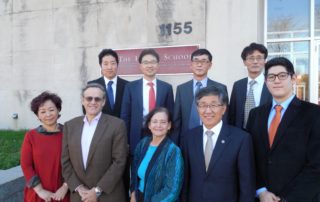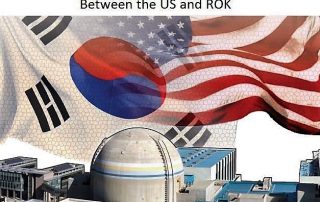At present, dialogue on nuclear technology in Washington, DC has tended to focus on issues related to nuclear materials security, nonproliferation, and arms control issues, rather than nuclear power. As a result, the policy community in Washington tends view nuclear power technologies with some skepticism. Given this environment, it is GABI’s commitment to promote, educate, and enhance the understanding of the vital role of nuclear power from the perspective of ensuring energy security, reliability and sustainability.
Realities of Today’s Civil Nuclear World: The Significance of International Partnerships
Realities of Today’s Civil Nuclear World: The Significance of International Partnerships March 11, 2015 The continued expansion of nuclear power worldwide, particularly in various countries throughout Asia, has presented new opportunities in the international nuclear market. However, the US nuclear industry presently faces considerable challenges that have the potential to impact its ability to compete










